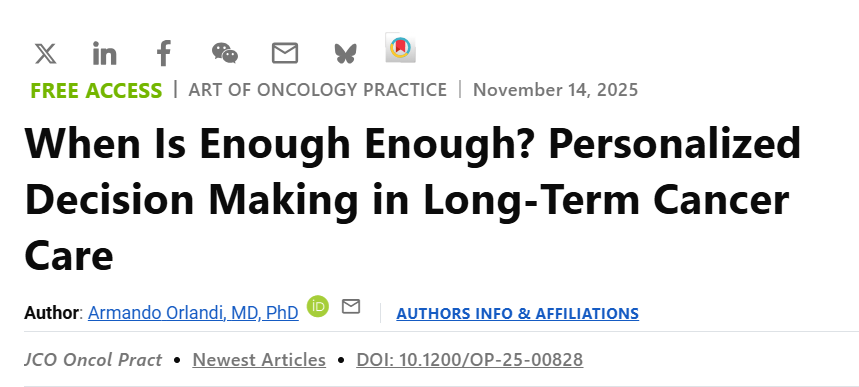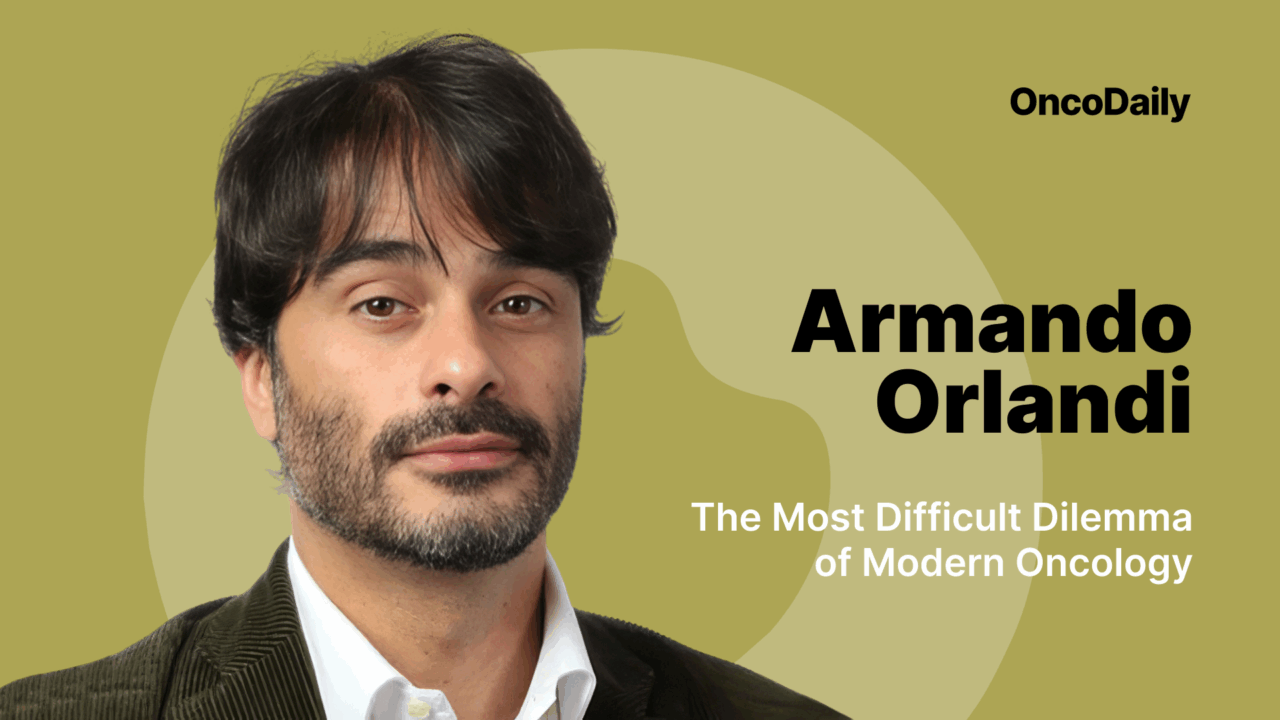Armando Orlandi, Medical Director at the Agostino Gemelli University Hospital Foundation IRCCS, shared a post on LinkedIn:
“When Is Enough Enough? The Most Difficult Dilemma of Modern Oncology.
I’m delighted to share my latest “Art of Oncology Practice” piece published in Journal of Clinical Oncology Oncology Practice — an article that tackles a question we oncologists have probably all avoided asking ourselves honestly.
The Problem: We spend years of training learning when to start therapy. Yet we rarely generate scientific evidence to establish when and how to de-escalate intensive therapies or interrupt treatment to establish a maintenance approach.
I tell the story of Elena, a neurologist who has been my patient for 5 years, maintaining complete radiological response on CDK4/6 inhibitor plus endocrine therapy. After half a decade of imaging clarity, Elena said something that fundamentally changed how I think:
“I’ve done my part. Five years of complete response, five years of neutropenia, five years of fatigue that never fully resolves between cycles, five years of monthly blood draws. There’s no evidence I need to continue. I want to stop.”
Here lies the true dilemma of modern oncology:
The certainty of chronic toxicity (fatigue, professional impact, being “permanently tethered to treatment”)
vs. The possibility of recurrence (with literature showing meaningful retreatment response rates).
Traditional medicine says: “We don’t interrupt treatment without evidence to stop.” But Elena was right – PFS curves don’t capture the daily reality of a neutropenic neurologist struggling with her patients’ care.
Shared decision-making is not a comfortable choice. It means living in the gray area between scientific certainty and clinical uncertainty. It means truly listening when a physician-patient says:
“I know the risks, but quality of life matters.”
The real question we should be asking:
How many of our patients achieving exceptional responses are suffering chronically without us simply asking? How many say “I’m fine” when they really mean “tolerable”?
The future of oncology isn’t just about new molecules (though they’re crucial). It’s about recognizing that personalized medicine means patients also deciding personally when they have “enough.”
Medicine is an art. And art thrives in the space between what we know with certainty and what we decide today, together with our patients. Perhaps the future lies not in finding new temporal thresholds, but in transcending them altogether – in treatments guided by biology, decisions informed by individual response, and care that respects the patient’s own assessment of quality of life.”
Title: When Is Enough Enough? Personalized Decision Making in Long-Term Cancer Care
Author: Armando Orlandi

More posts featuring Armando Orlandi on OncoDaily.


